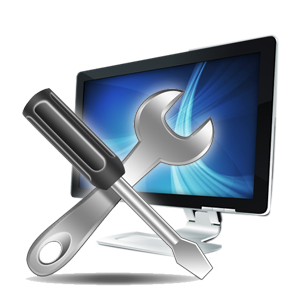

A majority of the problems on your computer can be fixed by yourself with a little help. By following the procedures explained below you can easily trouble shoot the problems away. If the computer still not functioning well then you can get the services of computer repair in edmonton.
Updating the software of computer
Most of the computer problems are evoked due to the obsolete and unpatched software, from outbursts of ransom ware to faulty keyboards that disobey to punch out the right letters when you type them. Fortuitously, most updates can now be applied automatically, as they are critical, which is why your computer might suddenly reboot when you were least anticipating it to. Primarily, focus on your operating system. For Windows, one can check for updates by going to Settings then clicking on Update & security; on macOS, open the App Store from the dock or the Applications screen in Finder, then go to the Updates tab. Ensure that you apply any updates that are pending.
Windows updates
Most software updates should be handled automatically. It is essential to keep tabs on updates of your other applications, including your antivirus program and your web browser, however again this is often handled automatically so you should have nothing to fret about. The update feature should be reasonably outstanding in any application, however, confer with the in-built help if you are wedged.
After application of all the updates that you have found, your problems might well be solved; however, this is as much of a method for avoiding subsequent issues as it is for solving existing ones. Make sure all of your installed apps are automatically updating themselves in the background, and you should get into lesser computer hassles as a result.
Cutting down on the build-up
You may think that leaving older, unused programs on your hard drive is moreover benign, but as more and more applications stack up, your operating system has to work harder, and the files on your computer are broken up more often and spread out further as your computer tries to save them, something called as fragmentation. Consequently, the amount of free storage space on your computer can become limited in an instant.
If you have observed that your machine is functioning slowly than before, crashing very often, or displaying some other kind of buggy behavior, it might be that it is merely breaking down under the weight of all the software you have installed. You can uninstall apps that you do not need any more from the Applications segment of Settings on Windows, or by dragging the application shortcut down to the Trash segment on macOS. Few macOS applications can be eliminated from the Launcher by clicking and holding on an icon until it starts shaking, and then clicking the cross icon.
Chrome extensions
The same goes for your browser—having too many extensions and add-ons installed can lead to a severe slowdown or some erratic behavior, so limit your extensions to the ones you need and use. For Chrome, go to More Tools, then Extensions from the main application menu; in Firefox select Add-ons from the main application menu; and in Microsoft Edge, select Extensions from the main application menu.
If your machine is running low on disk space, then it can result in multiple numbers of problems, including system crashes and slow performance. By removing unnecessary apps, try removing unnecessary files as well, like movies you have already watched or duplicate photos you have got backed-up safely on some other place.
